

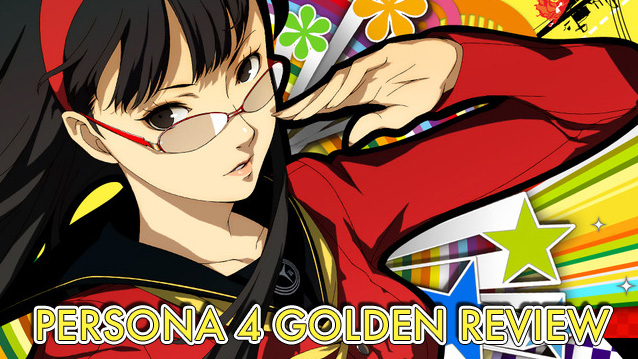
What is Persona 4 Golden? Well, if you played Persona 3 or its PSP derivative, you will know exactly what you're getting into here, because structurally it's exactly the same as that which came before. But if you are inexperienced with that sort of thing, here's the rundown.
You are a regular Japanese high school student (well, mostly regular -- you have white hair) who does high school stuff like go to class, take tests, play sports, join the symphonic band or drama club, hang out with your friends, bring girls back to your room for sex, etc. Meanwhile, there is a greater plot -- in this case, a murder mystery -- with a supernatural element that requires you to grind through dungeons sometimes, because, remember, this is a JRPG.
There have been a few changes since Persona 3, however. For one, you cannot make love to a robot in this one. Second, you won't have to do nearly so much dungeon crawling here (More on that in a second). And, of course, school in Inaba is different from school in Iwotodai, as Inaba is a remote and small country town rather than a big city. The simulation experience in P4G will be familiar, but it is still a unique experience. Oh, and unlike Persona 3 Portable, there is no option to play as a female protagonist.
Golden is more than a faithful re-issue of an old game. Here you'll find new relationships you can form and also some new dungeons to crawl through. They'll give you some perspective on the bigger picture and provide enough new content that old players will have a reason to play again.
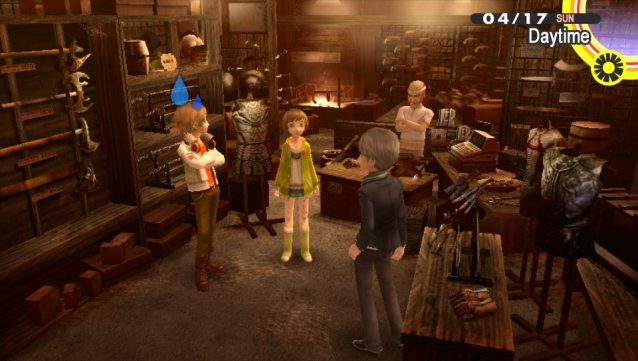
The cast of characters in Persona 4 Golden are varied and mostly fun to be around. There's the awkward everyteenager who can't seem to find a girlfriend, the tough guy who's always looking for a scrap, the cute tomboy, the shy, oblivious daughter of the historic town inn owners, the teenage pop star who has given up her life of fame and the girl who dresses like a boy. And I cannot forget Teddie, who is... well, he's Teddie. Each of them has a perfectly unique personality, and they all stand apart from each other. These are some well written characters, for the most part.
The main thrust of the game involves a mysterious character casting folks in town into a fantasy world that can be accessed through televisions. That world is filled with fog, but sometimes the fog moves into the real world, and when that happens, the humans cast into the TV world are torn apart by the shadows that inhabit it. It is your job, then, to rescue the victims before that occurs.
This game actually has quite a bit of insight into the human condition.A rescue involves grinding through multi-level dungeons while engaging in turn-based combat, which is exactly the same as it was in Persona 3. You can micromanage your whole group of four, or you can let your teammates do what they want while you deal only with your own actions.
Each dungeon is about ten levels tall or deep, and in the end all the dungeons you must complete don't add up to the 250 levels of Persona 3's Tartarus. This made me extremely happy, as all that grinding in P3P was insufferable. The developers figured out that combat is not the main attraction here and acted accordingly. Of course, if you somehow love grinding dungeons, you can turn the difficulty up, which will decrease e amount of XP you earn from battles and thus will make you have to spend more time in dungeons when the story isn't demanding it.
At the conclusion of each dungeon, the person you are rescuing must confront his or her inner demons. Literally. The dark side of the person involved becomes a horrifying creature at you must fight. These are the best parts of the game.
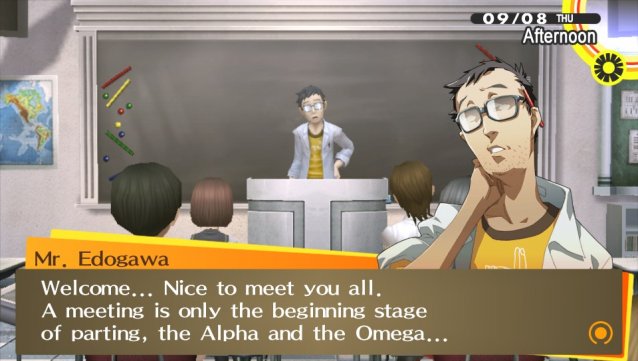
These shadow selves are the personification of the sides of each person they would prefer not to acknowledge in themselves, such as how one character is jealous of her best friend's looks and feels private enjoyment when she screws up, and also how she really wants her to depend on her so she can enact control over her friend. These shadows are emblematic of our hidden thoughts we would be embarrassed about if they came to light, and each character is forced to bare these things in front of the group. Although some of these things may appear silly and petty on the surface, I think most of us can relate to the shadow of at least one or two of these people, and when that happens it's a powerful experience. This game actually has quite a bit of insight into the human condition.
In the end, the plot is quite epic, though it appears to be a small-scale affair for much of the game. If you manage to pull back the curtain on the full mystery, you'll find a story that is significant enough to earn the JRPG designation. But if you don't succeed at that, you'll find an unsatisfying conclusion. This is a game that allows you to fail, and that's awesome.
This far, not all that many folks have found a reason to buy a PS Vita, but Persona 4 Golden certainly is one, especially if you've never played the previous version of the game. This is a legitimate system seller, and it's absolutely a must-have if you already own a Vita.
5/5
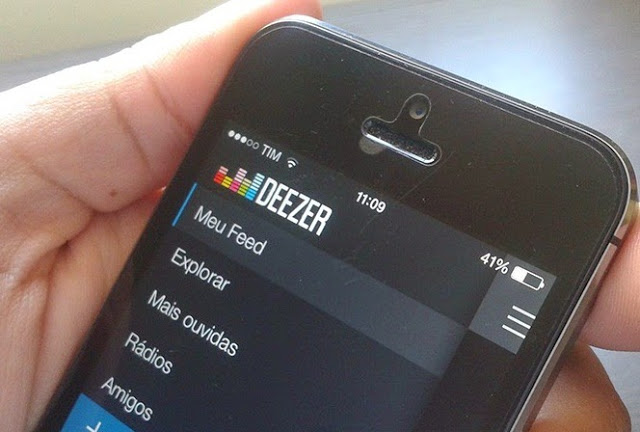

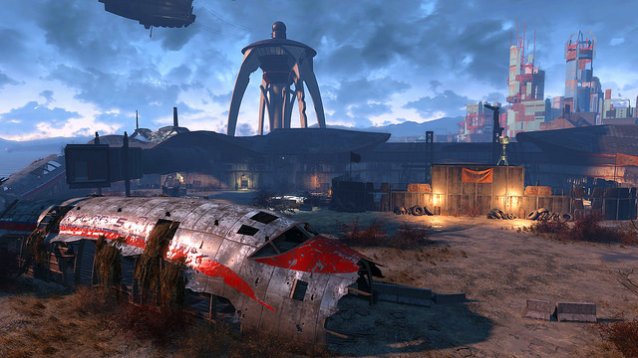
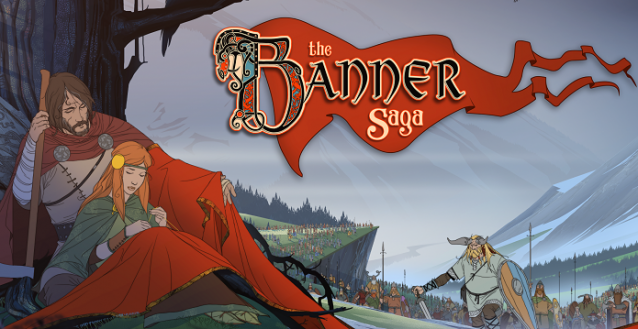
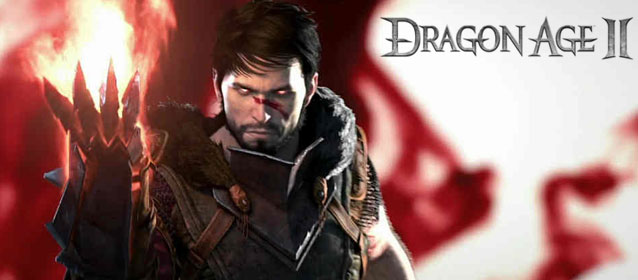 Dragon Age II: A Revolutionary RPG in the Making
Dragon Age II: A Revolutionary RPG in the Making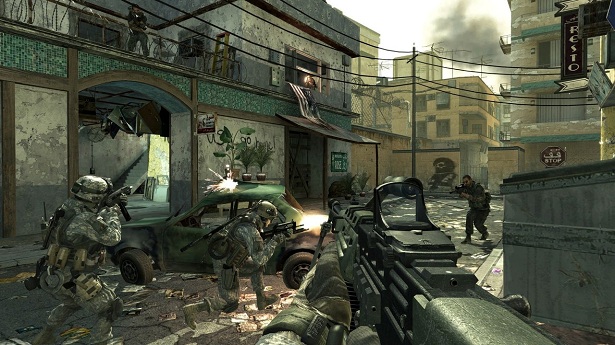 Call of Duty: Modern Warfare 3 Walkthrough
Call of Duty: Modern Warfare 3 Walkthrough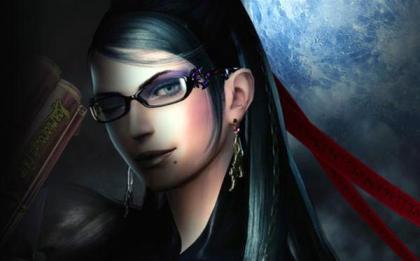 How to use Bayonetta 2 Basic, Advanced Combos and Techniques for Nintendo Wii U
How to use Bayonetta 2 Basic, Advanced Combos and Techniques for Nintendo Wii U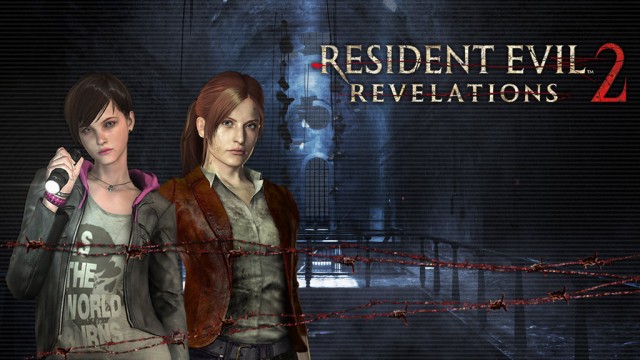 How to get Resident Evil Revelations 2 Fish in a Barrel Trophy / Achievement
How to get Resident Evil Revelations 2 Fish in a Barrel Trophy / Achievement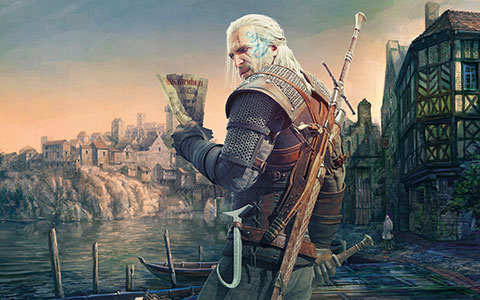 Witcher Seasonings - The Witcher 3 DLC Hearts of Stone Guide
Witcher Seasonings - The Witcher 3 DLC Hearts of Stone Guide